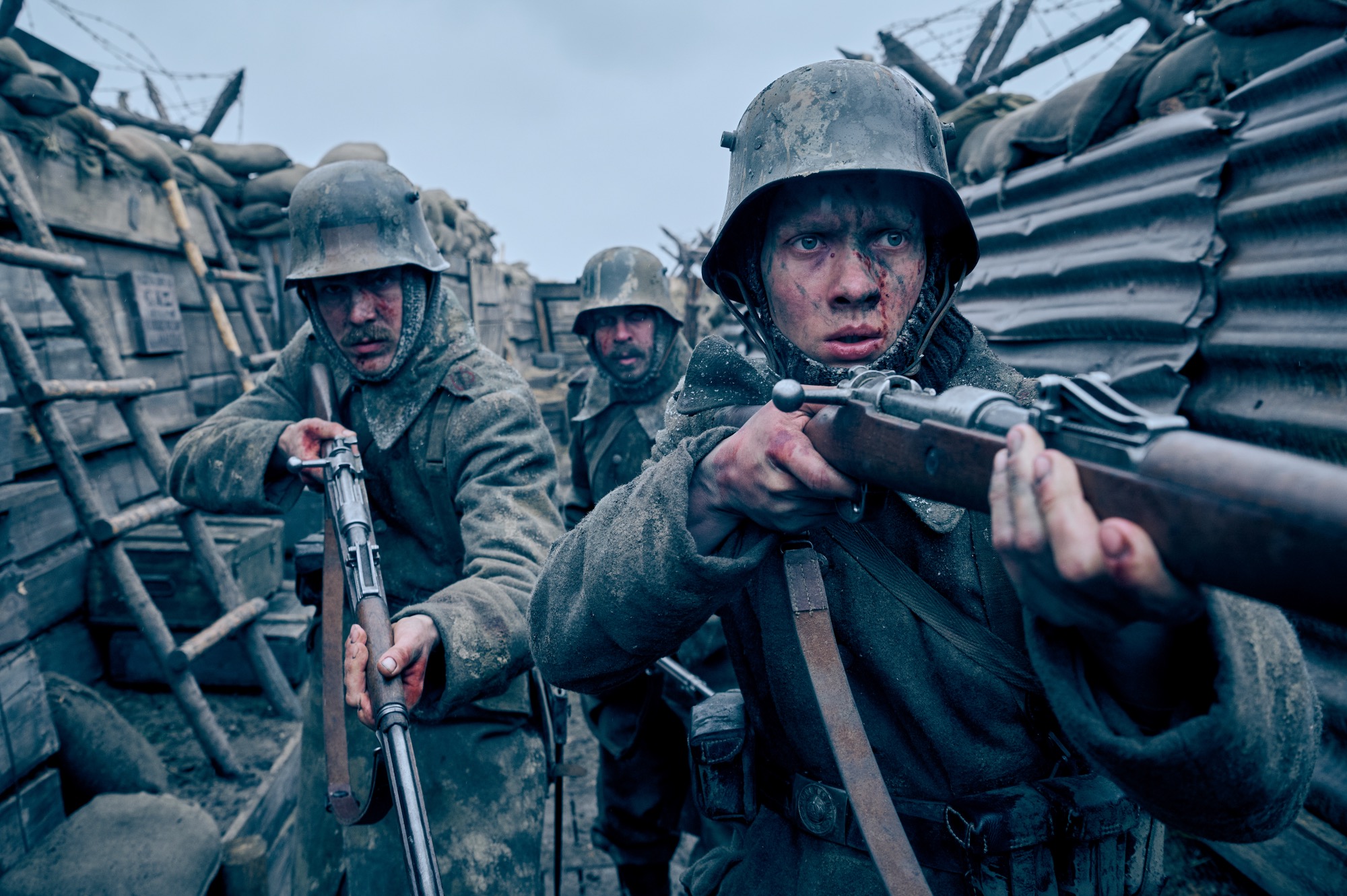
- Golden Globe Awards
All Quiet on the Western Front (Germany)
“I wanted to make a movie that wasn’t preachy or sentimental. Any director who seriously addresses the topic of war will probably have the noble intention of making a movie that speaks against war”, says director Edward Berger in the notes of his film, All Quiet on the Western Front.
The third adaptation of the German classic by Eric Maria Remarque – one in 1930, directed by Lewis Milestone, the other as a TV movie in 1979, directed by Delbert Mann, with Ernest Borgnine, Ian Holm, and Donald Pleasence – has two elements that diverge from its antecessors: the film is in German, and the brutality and horror of the war are expressed in full at the screen. “War is automatically associated with heroism”, Berger adds. “Of course. It was also horrifying in terrible losses for these countries (under war), no doubt.”
Faithful to Remarque’s narrative, young Paul Baümer (Felix Kammerer), a 17- year- old high-school student, joins the army in 191, at the height of the World War I, to fight on the western – France – front, together with his enthusiastic colleagues, sure that Germany would prevail, and they would come home as heroes. A brutal prepares the viewer for the level of carnage: we follow a young soldier marching towards the French machine guns, dying, his body thrown into a mass grave, and his boots and uniform removed. His clothes will be washed, pressed, and presented to young soldiers back in Germany, ready to replace the massive deaths on the western front – including Baümer.
The adaptation of All Quiet on the Western Front went through a long development, first with one production company and, finally, with a partnership of two producers, Malte Grunert and Daniel Dreifuss. Dreifuss tried to bring the first adaptation to his vision, and finally, in 2017, he could “redevelop the script and make it character front and center, not an action movie, not an adventure for – and I quote Remarque – ‘death is not an adventure to those who stand face to face with it.’”
“The book has something very powerful and gripping”, says Berger. “It comes across as current and new in its language choices, the violence, the physicality, and wit.” Berger and his DP, James Friend, planned to make the film the closest to an actual battle. “I had panic attacks because I was so worried that we would never be able to capture the complex technical processes in a single shot”, Berger confesses. “When we finally had this block of shooting behind us, the entire tome and all the actors were completely exhausted.”
It was worth it – bringing the characters as close as possible to the audience is the core of the film.

